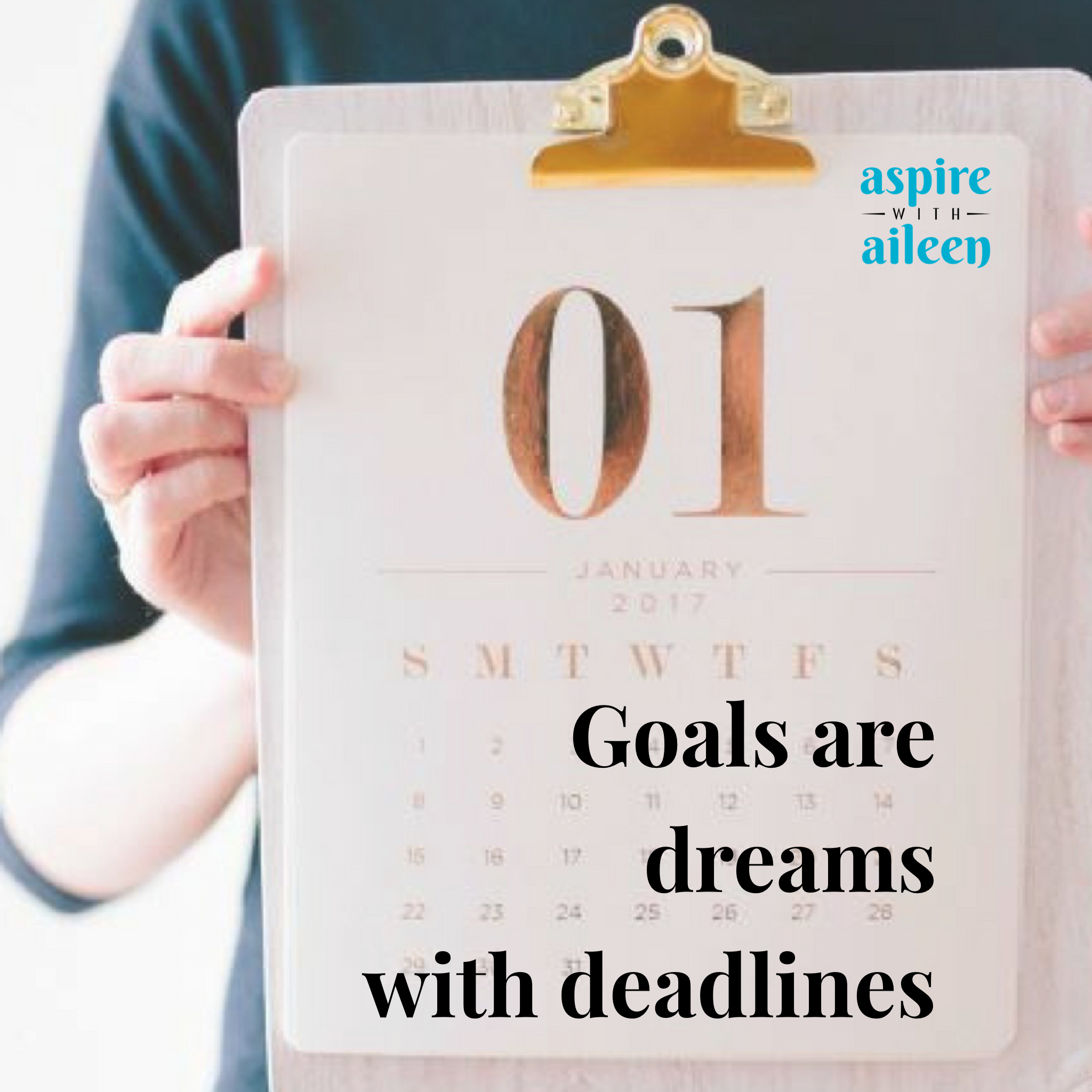When I was deciding whether or not to quit my job to scale up my business full-time, my friend and fellow coach Stephanie said something so beautiful and incredibly helpful:
For a decision like this you’ll be able to talk yourself into it or out of it a million times over. So, you want to get out of your own way. Give it up and ask for guidance. Set the intention to be guided to the right decision and then commit to actually listening to your intuition and not second guessing it.
Fear isn’t a sign that it’s the wrong decision. Fear is healthy.
The answer is already inside of you and you just need to slow down, let go, and listen for it. Then act on it.
The reminder that my gut already knew what to do, and the comforting insight that fear is not a bad thing, were exactly what I needed to finally get out of my own way and move forward with Aspire with Aileen.
When I work with both my career and health coaching clients, I truly believe that they too have the answers inside of them, they just need some space and guidance to find them.
On the career side, clients will come to me with the hope that I will just tell them which careers to go for (I don’t blame them, when I decided my SENIOR year of college that I didn’t want to pursue what I’d studied for 4 years, I wanted someone to do the same!). On the surface that doesn’t seem too outrageous, but when you think about the fact that you would trust a stranger over yourself for your life’s direction, that’s a pretty big deal!
For health coaching, clients want meal plans handed to them and to know which foods are “good” and “bad,” but ultimately even something as healthy as broccoli can be nourishing for one person and harmful for another. We instinctively know what foods and habits will serve us best, but don’t always take the time to slow down and listen or make changes.
There are a variety of reasons why we avoid taking action. At times, it’s because there aren’t obvious answers to these decisions/challenges. In these situations, how can you take action?
Similar to what Stephanie said, start by turning inward.
When it comes to career exploration, I encourage clients to explore their VIPS: Values, Interests, Personality, and Skills (more on this later when I release my self-assessment guide- stay tuned!). Use this framework to get clarity on what your drivers are, and how realistic the paths you’re exploring are as well. There are TONS of free online questionnaires and assessments to prompt you into delving deeper into these, but here’s one site that touches on a handful.
As for the healthy foods and habits exploration, start by taking stock of what you already do.
Try keeping a food journal for even just a few days – you’d be amazed by how much that can illuminate for you especially if you track how you feel physically after each meal. You may even notice you only drink one glass of water per day, a habit that is definitely important to change. When I have my initial consult with clients, I ask about everything from that water intake to how many times a day they check their email. From there, we build awareness of what foods and habits may be interfering with their wellbeing and create a plan to make lasting change. Sounds much better than just being told to eat kale, right?
Another thing you can do is poll the audience*
This has an * because in the end, you know yourself best. If you really want something, don’t rely on validation from others to feel you have the permission to go for it. Sometimes, however, we’re so immersed in our own ways of thinking that it can be helpful when others give us their perspective. Talking with friends and family may bring up insights like “You haven’t sounded excited about your work in months…” or “Every time you talk about xyz your face just lights up!”
Notice your reaction to any input from others.
Even more telling than what they say can be how you react. That’s because you know deep down in your gut what’s best for you and your gut will chime in if you’re being steered in a different direction.
If you’re dissatisfied in your work and thinking of making a change and someone were to say “No way, you’re crazy for even thinking of leaving that job” – Do you feel disappointed? Does your stomach sink? You may find clues to what you really want by looking at how you feel when someone tells you that you can or can’t have it.
Ask for help
One other option is continuing to have conversations, but with an unbiased party (like a therapist, health or career coach!). This can provide a safe space to really be heard without expectations or judgment. By the end of some of our sessions, I’ve had clients say “After talking through things a bit more and thinking out loud with you, I think I may have just answered my own question.”
These conversations, no matter who you decide to have them with (including with just yourself!), provide you with the space to step back, slow down, and evaluate your options to get to a place of confidence and clarity.
What decisions have you been grappling with and which of these tools can you implement to move forward?
In the image above, the words are an excerpt from a quote by Victoria Erickson. Full quote and link to her work here.






